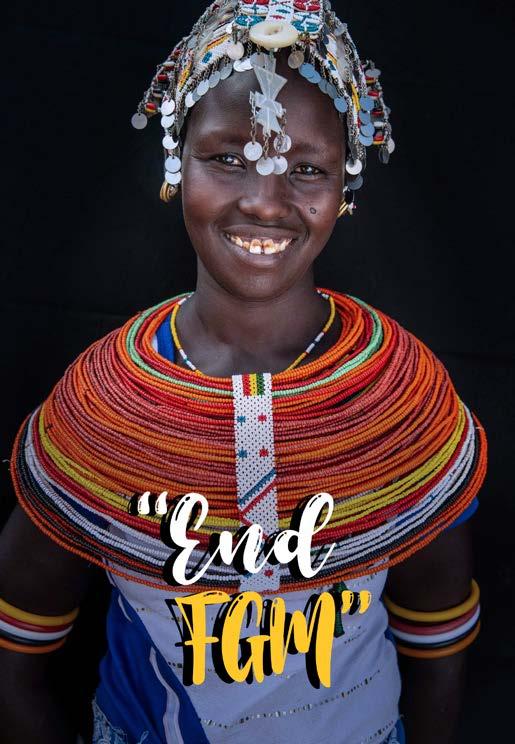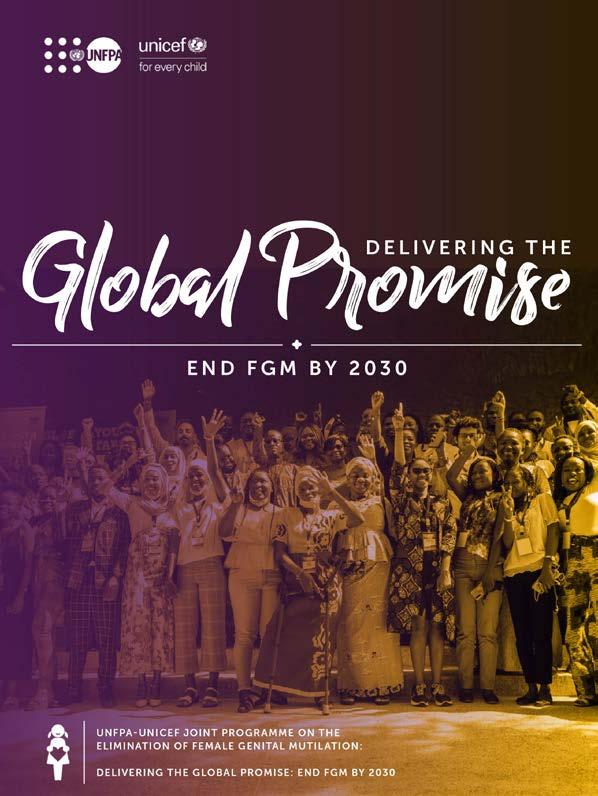
2 minute read
Equality Now
The africa She Wants: Ending FGM by 2030
by Nankali Maksud, senior Advisor for Prevention of Harmful Practices, Child Protection, UNICEF
Advertisement
As an African woman, a mother, and a professional who has worked for UNICEF for more than 20 years championing the rights of children, the elimination of FGM to me is one of the most important issues of our time. FGM involves the deliberate cutting, injuring and changing of girls’ genitals for no medical reason. As a practice that may have serious and long-term consequences on girls’ and women’s health and well-being, it is recognised internationally as a human rights violation. While communities cite lots of reasons for having girls undergo FGM, the prevailing myth is that it controls girls’ sexual desires, and preserves their virginity and prevents immorality.
The United Nations estimates that 200 million girls and women, worldwide, have undergone FGM. Although it is practiced across six continents, more than 80% of cases occur in Africa. As long as girls are subjected to FGM, continue to live in poverty and are denied their right to an education and hope for a better life, we will not realise Africa’s Agenda 2040 for the rights of all children, nor will we achieve gender equality and women’s empowerment as prioritized in the African Union’s Agenda 2063, the Africa We Want.
since 2008, UNFPA and UNICEF have been implementing the Joint Programme on the Elimination of FGM: Accelerating Change. As the largest global programme, we are working in 17 countries in partnership with governments and local organisations to empower girls and women, and support their communities in saying “no” to FGM. As a result of the Joint Programme, in 2021, almost 3.5 million people made public commitments to end FGM, and 216,853 girls were prevented from undergoing the practice.
In Africa, progress is being made as FGM becomes less common in 14 countries where it once was universal. In the last two decades, the proportion of girls and women who would like to see the practice end has doubled. While there is much to celebrate, population growth outpaces the rate of elimination of FGM. Now, more than ever, we must come together and recommit to a transformation that upholds the promise that girls are no longer at risk of this harmful practice. I encourage you to join the global movement to ensure the right of every girl to be free of FGM by advocating for governments to increase investments in girls’ and women’s empowerment, by supporting local organisations working to end FGM, and by engaging with our social media campaign #investDontrest. With your support, every girl will have the opportunity to achieve the Africa she Wants.












